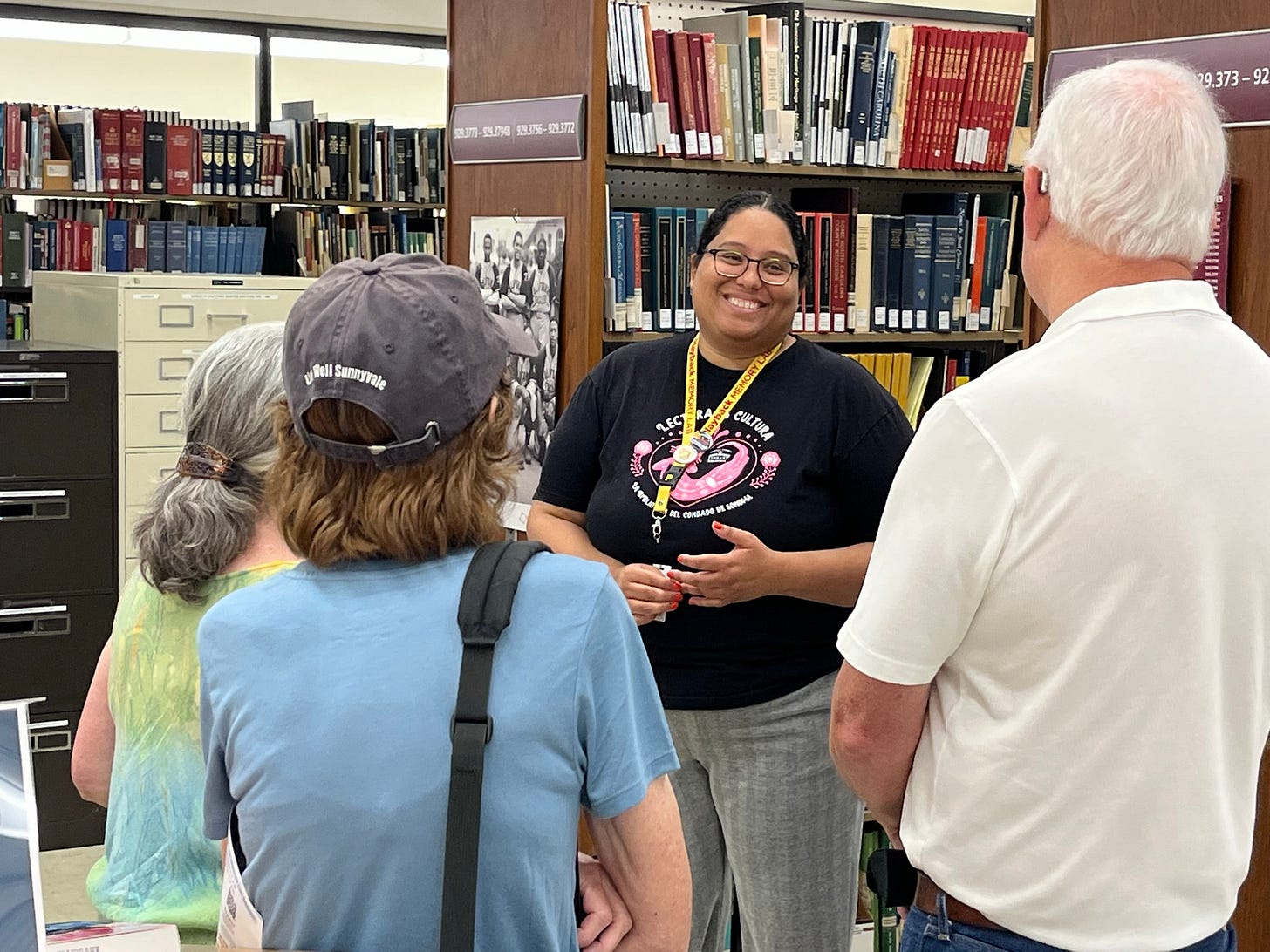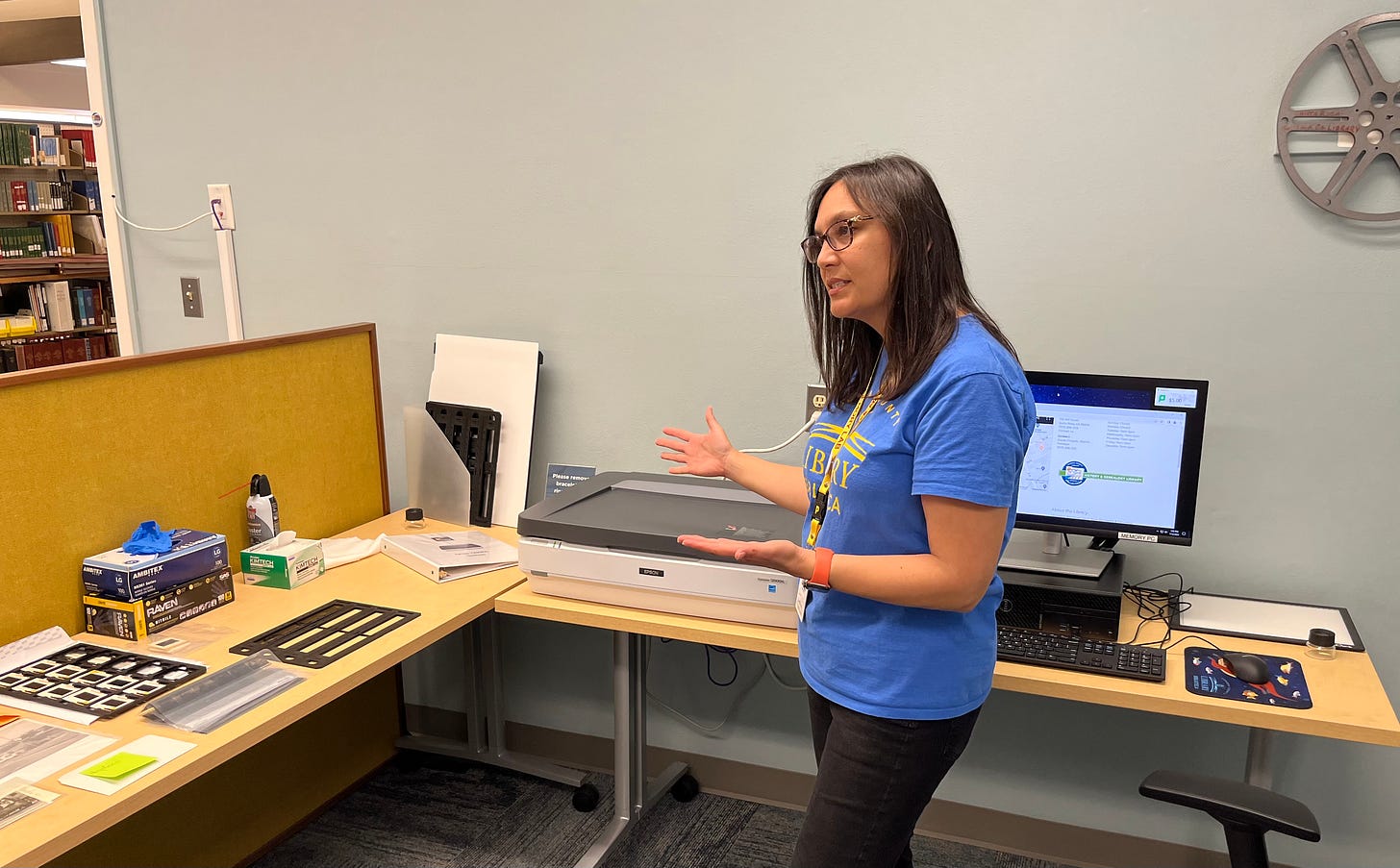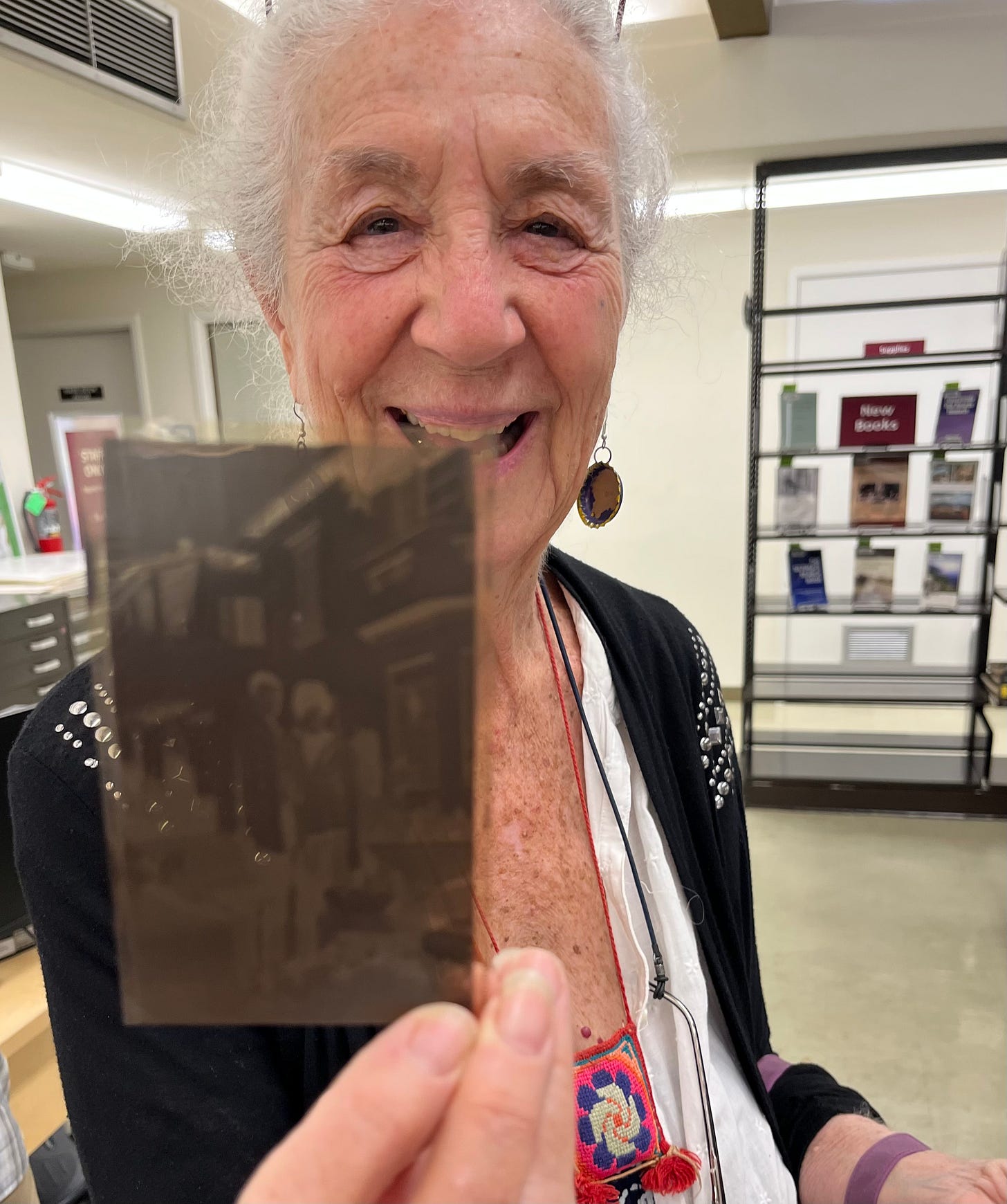Play back your past at Library lab
The library creates a place to scan your photos and convert VHS tapes for free
Today the Sonoma County History and Genealogy Library in Santa Rosa introduced the new Playback Memory Lab, which has DIY digitization stations for photos and videos. Using federal grant money, the Sonoma County Library purchased equipment that anyone can use for free to scan photos (including slides and negatives) and convert VHS tapes to digital files. Judging from the almost 100 people in the first hour of the open house, those who heard of it already have ideas about how to use it.
Library patrons can reserve the digitization stations for three hours on Thursdays and Saturdays from 1-4pm. Unfortunately, there is such demand that the Playback Memory Lab is already booked into October.
After an introduction, people at the Open House were given a tour of the digitization stations. Joanna Kolosov, program coordinator for the Playback Memory Lab, showed off the new equipment. The scanning station is an Epson 1200 XL with a 12”x17” bed connected to a Windows PC. “Multiple negatives or slides can be scanned at once,” explained Kosolov. “The software will separate the images into individual files.”
At another station, a Panasonic AG-1980P VHS/S-VHS tape deck is connected to a Mac Mini. “VHS tapes are meant to last only about 20 years,” said Kolosov. “So we are running out of time to convert them.”
Although there is some assistance available from staff at the Lab, the expectation is that users will learn to use the equipment and do the digitization process themselves — it’s DIY. The work can be tedious but satisfying in the end. Users will need to bring their own storage device (portable flash drive or USB memory stick) to take files home.
People came to the open house with projects in mind. Santa Rosa resident Peter Banks is working on his family’s life story and he has held on to boxes of stuff from his grandfather and father for over fifteen years. He has over 10,000 photographs that he’d like to scan. Peter grew up in San Diego and he’d like to make digital copies of photos that he can share with his children and grandchildren who live in different parts of the county.
His wife Mary said clearly that “this is entirely Peter’s project, not mine.” He smiled broadly. I asked Mary if she had photos that she’d like to scan. She said “No. None.” She paused then added, “That’s why I have siblings.”
Corlene Van Sluizer showed up with her husband Julian Blair and two large-format negatives that she was hoping to scan. One of them was a photo, she said, of her hitchhiking from here to Los Angeles. The photo was taken about 60 years ago. She had hitchhiked a lot back then and we agreed that hitchhiking might have been considered safe back then.
“I hitchhiked with my first husband all the way from Los Angeles to New York,” Corlene said. “A man outside of Chicago asked us if we had ever been camping. We told him no. He took us to a store and he bought a tent and sleeping bags for us. Then we went camping for the first time, the three of us.” She said that thinking back on it that it was a little scary. Corlene is working on a memoir.
Julie Anderson of Windsor has negatives that she’d like to scan from a six-month trip that she and her sister went on in 1979 to Afghanistan, Iran, Pakistan and Nepal. The photographs that she took on the trip are “in rough shape,” so she’d like to digitize the negatives and create a digital photo book.
I asked her what she remembered most from the trip across Asia. “I remember the amazing landscape from northern Afghanistan, up in the mountains,” she said. “Because we were two women traveling together, we got invited into people’s homes by the women, and we’d sit down and drink tea and eat melon and then one of their daughters would get up and dance to a drum.” I wondered if she had a photo that captured a scene like that.
The sisters’s trip ended in Nepal but it started in Amsterdam and they went by land on bus or foot the whole way from Europe across Asia. “This was before the Soviets went into Afghanistan or later the Americans,” she said.
The Playback Memory Lab will inspire many people to tell their own stories. Once they gather the physical materials of memories, they can give them a new life in digital form for future generations.
I rather wish that the Playback Memory Lab would have a log that people could use to let us know what story they came to tell.
Link: Playback Memories Lab website





